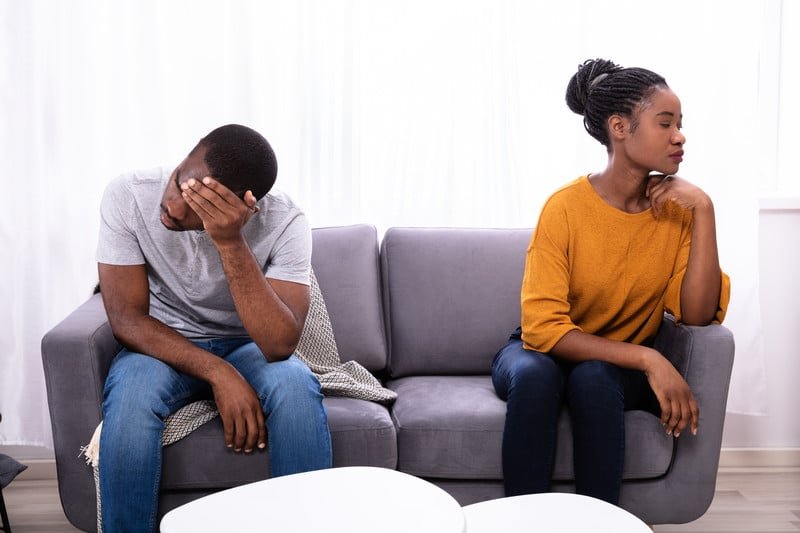Specialties
Sexual Abuse/Trauma
One in 3 women and 1 in 8 men experience sexual violence in Canada. From childhood sexual abuse to sexual harassment, coercion and rape, many are at risk for experiencing trauma that can impact their sexuality. Sexual abuse is an incredibly violating experience that can lead a person to feel many negative emotions, develop dysfunctional attitudes around sex and create problems associated with sexual functioning and expression. No matter how minimal or severe you may perceive your sexual trauma to be, all survivors deserve to experience a fulfilling and satisfying sex life. As a survivor myself, I understand the vulnerability, shame, guilt and fear associated with confronting this type of experience, yet I also understand the importance of it. I can’t promise miracles, but I can promise to help you move past your sexual trauma as well as support and empathize with you through your own sexual healing journey.
Low/Discrepant Desire
Having low or inhibited sexual desire is the most prevalent of all sexual problems coming to sex therapy (33.3% of women and 15.8% of men)*, leaving desire discrepancies between partners to be the second most prevalent (more than 50% of couples)*. If you’re single, you might feel disappointed and frustrated over your low desire as it may interfere with your solo-pleasure, self-esteem, and self-identity. If you’re in a relationship, you may feel to blame or you might feel your partner is to blame. The truth is, no one is to blame. It’s best to view this as a partner issue as the goal is to come together as a team to rekindle the sexual pleasure between you. There are ways to address low desire, strategies to bridge the gap between partners and integrate new ways of being intimate as well as deriving sexual pleasure and satisfaction. As I’ve successfully helped both individuals and couples with low/discrepant desire, I hope to help you reignite this flame too.
*National Health and Social Life Survey (1992)
Kinks/Fetishes
“What is normal when it comes to sex?” This is a question I’m asked regularly. The answer, simply put, is nothing! As long as it is safe, sane and consensual, anything can be sexually arousing and acceptable. It may comes as a surprise, but fetishes have been around for centuries and researchers Christian Joyal and Julie Carpentieras (2016) note that nearly half (45.6%) of Canadians admit to engaging in some type of kinky behaviour. The unfortunate side of kinks and fetishes, is that they’re still not as openly talked about or accepted. There’s still a lot of shame and embarrassment involved. I’ve even seen individuals who have been married for 30+ years and have never confided in their partners about their sexual kinks, fetishes and fantasies. No matter your or your partner’s fetish(es), I am here to process and explore these with you, as well as integrate these erotic pleasures into your life in a healthy, positive way if that is your goal.
Sex Addiction
Sex Addiction, also known as Out of Control Sexual Behaviour (OCSB) can include many different obsessive, compulsive and impulsive behaviours, from watching pornography, to masturbation, seeking out escorts, persistent unsafe sex practices, and multiple affairs or sex partners. You may ask yourself if your sexual thoughts and behaviours could be considered “out of control.” If it’s significantly distressing, interferes with your personal, relational, educational, and/or occupational functioning, causes you to neglect your health, personal care or other interests, activities, and responsibilities, has adverse consequences, or implicates a pattern of failure to control intense sexual impulses or urges, it may be time for you to tackle your sex addiction with a sex therapist, such as myself. As with all sexual problems, I hold a very non-judgmental stance when it comes to OCSB. I hope to work with you in finding a way to break free of sexual compulsions whilst embracing your sexuality in a healthy way.
Difficulties Achieving Orgasm
While it’s most prevalent in women, both men and women can experience difficulties achieving orgasm. There are a number of factors that may influence a person’s inability to climax, from relationship issues, to stress, limited understanding of sexual stimulation, mental health problems and medical conditions. Despite the cause, those who struggle to reach orgasm may experience a lot of frustration or feel inadequate and devoid of one of the most pleasurable experiences of the human condition. That said, orgasm isn’t the end all be all, but I do understand how important and highly regarded it is to those who desire this source of pleasure. Luckily, as a trained sex therapist, I can assist my clients in accessing their ability to achieve an orgasm alone or with a partner using a number of different educational tools, interventions and recommendations.
Infidelity
Infidelity may come in the form of an emotional and/or physical betrayal of loyalty. Regardless, infidelity in a relationship can have devastating impacts on the bonds between partners. It may seem insurmountable but I believe that relationships can be very resilient. With the support of a sex therapist, it is possible to move past the affair that feels incredibly traumatic and overwhelming right now. My approach with infidelity is to help partners communicate about this tragedy in a healthy but productive way, understand when and what went wrong, process how each partner was affected by the affair, restore trust, and build strategies that help both partners move forward and maintain progress. While I always hope that relationships can sustain this devastation, sometimes partners decide to go their separate ways instead. I can also help support these partners transition, adjust and accept this new reality of their relationship.
Sexual Pain
Many women (and less often men) experience genital and/or pelvic pain (e.g., Vaginismus, Dyspareunia, Vulvodynia, etc.), which greatly impacts sexual functioning. Factors that cause these devastating problems range from being physiological in nature to psychological, or both. Sexual trauma, issues resulting from child birth, chronic illness and invasive surgeries, inadequate vaginal lubrication, and endometriosis are just a few examples that cause painful intercourse. These issues are exacerbated by other factors, such as anxiety and lead to additional problems, such as relationship issues and depression. For so many reasons, women’s and men’s struggles with genito-pelvic pain should be taken very seriously and treated with great care and compassion. With my support in processing these experiences, providing some techniques that can generate sexual pleasure and satisfaction, and referrals to other specialists that also treat sexual pain, there is hope for improving your sex life!
Erectile Difficulties, Premature Ejaculation & Delayed Ejaculation
Many men experience difficulties gaining or maintaining an erection, problems ejaculating prematurely or require an extended period of sexual stimulation prior to reaching sexual climax. These issues cause men to experience dreadful shame and emasculation which may lead to performance anxiety or complete avoidance of sexual intimacy. Alternatively, women also experience feelings of rejection, guilt and low self-esteem, perceiving themselves to be the cause. This is often not the case and no one is to blame. Regardless of when or how these problems began, sex therapists, such as myself can help you understand the causation and provide you with different strategies for how to overcome these issues alone or with a partner. I have seen a number of male clients who end their treatment with me feeling like they’ve successfully overcome their issue and I’d like to see you reach that same goal too. Let’s work together to find a solution that best works for you too!
Sexual Orientation & Gender Identity
While the LGBTQQI community is expanding and becoming more widely accepted and supported, many individuals continue to experience a great deal of internal and external conflict with their sexual orientation and/or identity. Our sexual orientation and gender expression are integral parts of our identity. If you are someone who feels uncertain about your gender or identity, struggles with understanding or accepting your own sexual orientation, need support in transitioning, experience difficulties feeling loved, supported and accepted by your loved ones, or if you suffer with feeling the consequences of discrimination, I will be here to support you through these difficult situations and circumstances. You deserve to embrace your unique self as well as feel like and be exactly who you are, starting from the inside, out!









